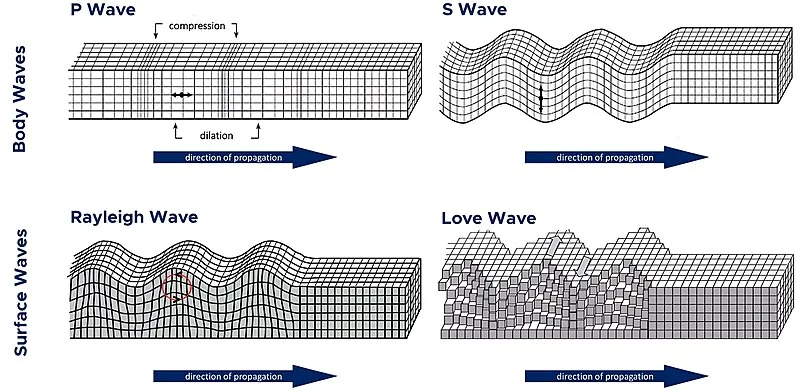Digital Alienation in the IT Sector: A Marxist Perspective
Sociology Paper 1: Sociological Thinkers – Karl Marx – Alienation

In the contemporary era of rapid technological advancement, the IT sector has emerged as a key driver of economic growth, employment, and innovation worldwide. Particularly in countries like India, the information technology industry has become emblematic of modern development, offering high-paying jobs, global exposure, and the promise of upward mobility. Yet, beneath this façade of opportunity lies a subtle, often overlooked phenomenon: Digital alienation. This form of alienation manifests when IT professionals experience estrangement from their labor, the products of their work, their colleagues, and even their own sense of self, as a consequence of the structure and demands of digital work. To understand this phenomenon, Karl Marx’s theory of alienation provides a critical lens. Marx’s insights, developed during the industrial revolution, remain strikingly relevant in analyzing the psychological and social dynamics of contemporary digital labor.
Karl Marx’s Theory of Alienation
Karl Marx (1818–1883), in his early works—most notably the Economic and Philosophic Manuscripts of 1844—introduced the concept of alienation as a central critique of capitalist society. He argued that in a capitalist system, workers are fundamentally estranged from their labor because they do not own or control the means of production. This structural separation extends to the products they create, the process of working, their fellow human beings, and ultimately themselves.
Marx identified four key dimensions of this alienation.
First, alienation from the product of labor occurs because workers produce goods or services that are not theirs to own or direct. The fruits of their labor are appropriated by capitalists, leaving workers disconnected from the outcomes of their work. This detachment creates a sense of powerlessness and reduces labor to a transactional activity rather than an expression of creativity or purpose.
Second, alienation from the process of labor arises when the act of working itself becomes externalized. Under capitalist conditions, workers often have little autonomy, creativity, or decision-making power in how their work is performed. Labor becomes a mechanical, repetitive task dictated by efficiency, productivity metrics, and hierarchical oversight, rather than an activity in which the worker can find fulfillment or self-expression.
Third, alienation from fellow humans emerges because capitalism fosters competition and rigid hierarchies. Social relations in the workplace are shaped by power dynamics, rivalry, and transactional interactions, leaving little room for genuine collaboration, empathy, or community. Workers may experience isolation, estrangement, and a weakening of social bonds that are essential to human well-being.
Finally, alienation from self—or species-being, as Marx terms it—refers to the estrangement of individuals from their own human potential. Under capitalist labor conditions, people are often unable to realize their creativity, imagination, and intrinsic capacities. Instead, work becomes merely a means of survival, reducing human activity to an instrument for economic gain rather than a manifestation of personal growth, purpose, or identity.
Marx emphasized that alienation is not merely a psychological or personal problem; it is a structural condition embedded in the organization of labor and ownership patterns within capitalism. Although he developed these ideas in the context of factories and industrial labor, the core principles of alienation continue to resonate in contemporary work environments. Even in modern digital workplaces—where tasks are mediated by technology, fragmented across teams, and oriented toward global clients—the estrangement that Marx described can be observed, highlighting the enduring relevance of his critique.
Digital Work in the IT Sector
The IT sector, which includes software development, IT services, business process outsourcing (BPO), and tech-enabled solutions, has dramatically reshaped labor practices on a global scale. India, as one of the world’s leading IT hubs, employs millions of software engineers, programmers, data analysts, and digital support staff. While this sector has contributed significantly to economic growth, job creation, and global technological integration, it also exemplifies contemporary forms of labor alienation that Karl Marx described over a century ago.
One defining feature of IT work is the remote and digitalized nature of the workplace. Most interactions occur through screens, emails, or virtual meetings rather than face-to-face communication. While this enables flexibility and efficiency, it also reduces opportunities for meaningful social engagement, creating a sense of isolation among employees. This mirrors Marx’s concept of alienation from fellow humans, as digital interfaces often replace genuine interpersonal connections.
Another characteristic is the project-based and deadline-driven nature of labor. IT professionals frequently operate under strict timelines and performance metrics, where productivity is prioritized over intrinsic satisfaction or creative expression. Workers have limited control over how tasks are executed, which reflects Marx’s notion of alienation from the process of labor, as work becomes an external, imposed activity rather than an avenue for self-realization.
Task fragmentation further compounds this estrangement. Employees often contribute highly specialized and repetitive components to larger digital products without ever seeing or understanding the final outcome. For instance, a software engineer may write a single module of an application without knowing how it fits into the entire system. This disconnection exemplifies alienation from the product of labor, as workers are detached from the results and impact of their efforts.
Lastly, the dependency on global clients and external demands shapes labor in the IT sector. Workers must adhere to strict protocols, standards, and client expectations that are often set abroad. Their labor is thus directed by external forces rather than personal choice, reinforcing alienation from self—or species-being—where work is reduced to a means of earning a livelihood rather than a fulfilling or creative endeavor.
In sum, while the IT sector has brought unprecedented economic opportunities and technological advancement, it simultaneously manifests structural forms of digital alienation. The features of remote work, deadline-driven projects, task fragmentation, and client dependency create conditions in which workers experience detachment from their labor, the outcomes of their work, colleagues, and even their own potential—echoing the enduring relevance of Marx’s critique in the digital age.
Digital Alienation in the IT Sector
- Alienation from the Product of Labor
IT professionals often work on large-scale projects where individual contributions are embedded within vast digital systems. A software engineer may code a specific module of an application but may never see the final product in its entirety or use it personally. Similarly, customer service agents handle queries or perform repetitive tasks that benefit clients rather than themselves. This detachment mirrors Marx’s assertion that workers become estranged from the outcomes of their labor. - Alienation from the Process of Labor
In IT, labor is increasingly standardized, monitored, and mediated through project management tools, time-tracking software, and performance dashboards. Employees have limited autonomy over how work is executed, as processes are designed for efficiency and predictability. For example, in BPO call centers, strict scripts and pre-defined protocols reduce creativity and agency, creating a sense of monotony and mechanical labor reminiscent of industrial factory work. - Alienation from Fellow Humans
Remote work, hierarchical structures, and competitive performance metrics often limit meaningful interpersonal engagement. Teams communicate primarily through virtual channels, reducing informal social interactions and emotional bonding. Additionally, performance-based hierarchies and intense global competition foster a culture of individualism, isolating workers from collective solidarity. Marx’s notion of social estrangement thus finds a clear parallel in the virtual and competitive dynamics of IT labor. - Alienation from Self (Species-Being)
Perhaps the most insidious aspect of digital alienation is the estrangement from one’s own potential. Highly skilled professionals may spend the majority of their time performing routine, narrowly defined tasks, rather than engaging in creative problem-solving or innovation. Continuous pressure to meet deadlines, handle client expectations, and optimize productivity reduces work to a survival mechanism rather than a means of self-actualization. This detachment from intrinsic capacities and creative expression reflects the core of Marx’s theory.
Socio-Economic and Psychological Implications of Digital Alienation
Digital alienation in the IT sector has far-reaching socio-economic and psychological consequences that affect both individuals and the broader workplace environment. One of the most immediate impacts is on mental health. Research has shown that IT professionals face high levels of stress, burnout, and anxiety, often resulting from extended work hours, stringent deadlines, and constant monitoring through digital surveillance tools. The pressure to meet client expectations and maintain productivity metrics can create a sense of relentless strain, leaving workers emotionally and psychologically depleted.
Another significant consequence is reduced job satisfaction and engagement. Alienated employees frequently experience low intrinsic motivation because their work feels disconnected from personal goals or creative expression. This detachment can lead to disengagement, absenteeism, and a high rate of job-hopping, as professionals seek roles that offer greater autonomy, purpose, or recognition. In the long term, this impacts organizational productivity and retention, while reinforcing the cycle of worker estrangement.
Digital alienation also contributes to the erosion of social cohesion within workplaces. Remote work environments, virtual collaboration, and competition-driven performance metrics often limit meaningful interaction among colleagues. The resulting isolation undermines workplace solidarity, diminishes opportunities for mentorship or peer support, and weakens the collaborative culture that is essential for innovation and collective problem-solving.
Finally, digital alienation can have profound cultural and identity impacts. IT workers are often required to align their work practices with global clients and international standards, which may conflict with their personal, social, or cultural contexts. Continuous adaptation to external demands can generate identity conflicts, reduce a sense of belonging, and create feelings of disconnection from one’s own values and community. Over time, this can affect not only workplace satisfaction but also broader social and psychological well-being.
In summary, the socio-economic and psychological implications of digital alienation underscore the hidden costs of a highly productive yet impersonal digital work environment. While the IT sector has enabled economic growth and technological progress, the human dimension of work—mental health, engagement, social connection, and cultural identity—remains vulnerable to the structural and organizational pressures inherent in contemporary digital labor.
Case Studies and Examples of Digital Alienation in the IT Sector
The phenomenon of digital alienation is not merely theoretical; it is vividly illustrated through real-world experiences of IT professionals in India and across the globe. In India, a 2023 survey conducted by the National Institute of Mental Health and Neuro-Sciences (NIMHANS) revealed that over 60% of software engineers reported experiencing moderate to high levels of stress. The primary sources of this stress included repetitive tasks, extended work hours, and pressures imposed by clients, particularly in globally outsourced projects. Many professionals highlighted their lack of control over project outcomes as a critical factor contributing to dissatisfaction, demonstrating a clear example of alienation from the product and process of labor, as identified by Marx.
Globally, even highly reputed companies in the IT sector, such as Amazon and Google, have faced scrutiny for practices that exacerbate digital alienation. Over-monitoring of remote workforces, algorithmic performance evaluations, and rigid project protocols often restrict employees’ autonomy in executing their work. Despite contributing to high-value products that generate immense profit for these corporations, many employees report feeling invisible and disconnected from the impact of their labor. These instances mirror Marx’s concepts of estrangement from the product, process, and self, highlighting that alienation persists even in technologically advanced and economically lucrative workplaces.
The gig economy and freelance IT work further exemplify digital alienation. Platforms like Upwork, Fiverr, and Freelancer allow individuals to work remotely for multiple clients across the globe. While offering flexibility and access to global opportunities, these platforms often reduce work to highly fragmented, task-specific assignments. Freelancers frequently receive minimal recognition or connection to the larger project, reinforcing feelings of detachment and depersonalization. This scenario reflects Marx’s idea of estrangement from both the product and process of labor, as freelancers contribute value without ownership, autonomy, or meaningful social interaction.
Together, these case studies demonstrate that digital alienation in the IT sector is a pervasive phenomenon, cutting across organizational types, geographic boundaries, and employment models. Whether in corporate offices, remote teams, or gig-based work, employees frequently experience disconnection from the outcomes of their labor, the processes they engage in, their colleagues, and even their own creative potential. By situating these examples within a Marxist framework, it becomes evident that contemporary digital work reproduces structural forms of alienation long theorized in industrial labor, now adapted to the context of technology-driven economies.
Critiques and Counterpoints
While Marxist theory provides a robust framework, critics argue that digital labor also offers unprecedented autonomy, flexibility, and creative opportunities not available in traditional industrial work. Remote work enables professionals to design their schedules, pursue side projects, and access global opportunities. Moreover, digital collaboration tools facilitate connectivity and knowledge sharing. These aspects suggest that digital alienation is neither uniform nor inevitable—it interacts with organizational culture, management practices, and individual agency.
Conclusion
The IT sector, while driving economic growth and technological innovation, embodies a new form of labor alienation that Marx’s theory helps illuminate. Digital alienation manifests through estrangement from products, processes, colleagues, and self, generating significant psychological and social consequences. As technology continues to mediate work, policymakers, organizations, and labor institutions must adopt strategies to mitigate alienation: promoting autonomy, enhancing participatory decision-making, fostering collaborative work cultures, and prioritizing mental health. Recognizing digital alienation not only deepens our sociological understanding of labor in the 21st century but also paves the way for more humane, equitable, and fulfilling digital work environments.
In sum, Marx’s 19th-century insights resonate powerfully in the 21st-century IT sector. While technology transforms work, the fundamental human need for connection, creativity, and control over labor remains. Addressing digital alienation is thus not merely an academic exercise but a societal imperative for sustainable and meaningful digital work.


Non-Positivist Methodologies in Social Research
Home / Non-Positivist Methodologies in Social Research Shift from Positivism to Non-Positivism As sociologists recognized that social realities cannot be
UPSC Current Affairs – December 3
December 03rd Current Affairs Home / Table of Contents Govt ready to talk about electoral reforms in Parliament, but not
Fact, Value and Objectivity
Home / Fact, Value and Objectivity What is a Fact? A fact is an empirically verifiable observation—something that can be
UPSC Current Affairs – December 2
December 02nd Current Affairs Home / Table of Contents Bioterrorism a serious threat, world not ready: S. Jaishankar Relevance to
Positivism and its Critique
Home / Positivism and its Critique What is Positivism? Positivism is the idea that human behaviour can be studied using
UPSC Current Affairs – December 1st
December 01st Current Affairs Home / Table of Contents Sri Lanka declares state of emergency after floods and mudslides Relevance
Major Theoretical Strands of Research Methodology
Home / Major Theoretical Strands of Research Methodology Research methodology is a broad term that encompasses the entire research process
UPSC Current Affairs – November 25
November 25th Current Affairs Home / Table of Contents Woman from Arunachal Pradesh stopped at China airport; India issues strong
UPSC Current Affairs – November 24
November 24th Current Affairs Home / Table of Contents Justice Surya Kant sworn in as 53rd Chief Justice of India
UPSC Current Affairs – November 21
November 21st Current Affairs Home / Table of Contents What is Cloudflare, and why did half the internet go down




